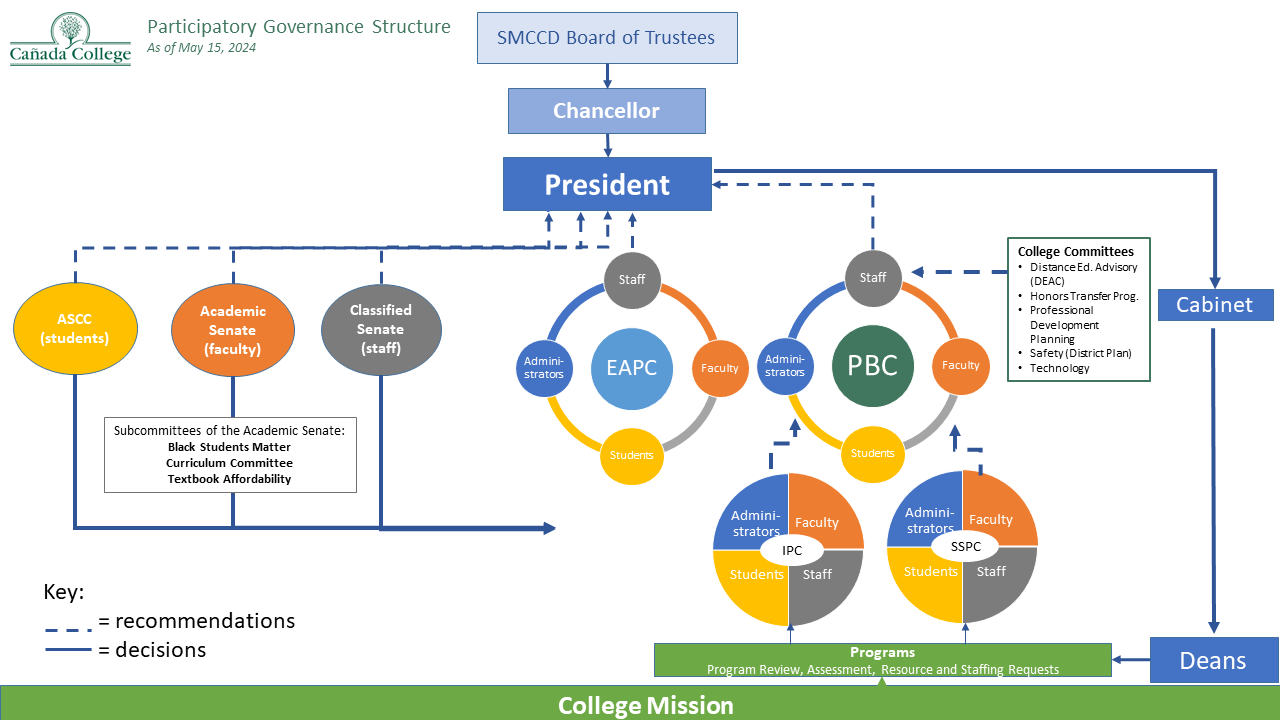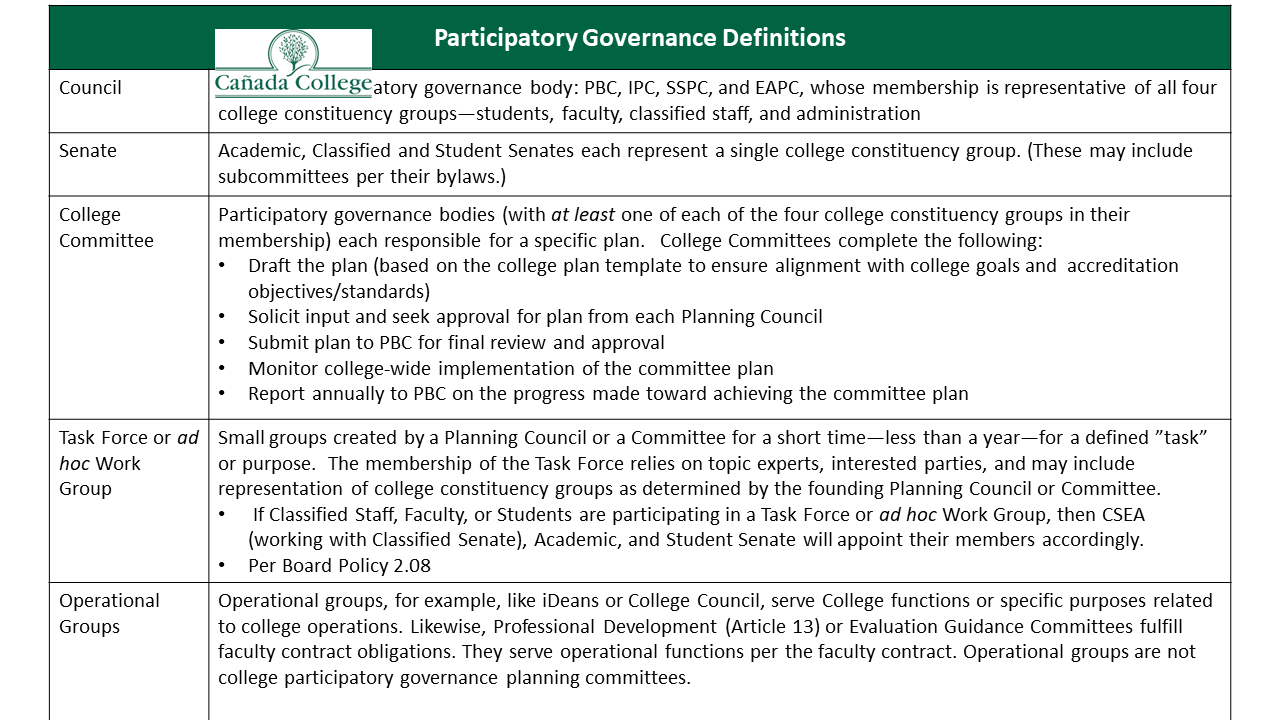Participatory Governance Manual
Revised by PBC Nov. 7, 2018; updated by PBC April 7, 2021; updated by PBC May 17, 2023; updated by PBC October 18, 2023
Overview
Participatory governance is defined as a collaborative effort of administration, faculty, staff, and students for the purpose of providing high quality college programs and services. All members of the campus community are invited to participate in planning for the future and in developing policies, regulations, and recommendations under which the College is governed and administered (see California Education Code (70901(b)(1)(E)). Each year, new and existing members of all participatory governance groups participate in an orientation. The Fall 2024 Orientation can be found here.
In lieu of a manual, Cañada College has created this website to explain it's participatory governance structure, philosophy, and corresponding planning and budgeting processes. Information can be found in the links to the left.
Participatory Governance Bodies
The primary stakeholder groups at Cañada College are Senates:
Representatives from each of these stakeholder groups come together with college administrators to collaborate in the following participatory governance Councils:
- Planning & Budgeting Council (PBC)
- Instructional Planning Council (IPC)
- Student Services Planning Council (SSPC)
- Equity & Antiracism Planning Council (EAPC)
and College Committees:
- Distance Education Advisory Committee (DEAC)
- Honors Transfer Program Committee
- Professional Development Planning Committee
- Safety Committee
- Technology Committee
The reporting structure between participatory governance bodies, as of May 15, 2024, is depicted in the chart below:

A Compendium of Participatory Governance Bodies describes the role, responsibility, membership and relationship of all college-wide committees to the PBC. Other Operational Groups or Task Forces may exist for a specific purpose (see definitions below) but are not participatory governance groups. The College definitions of each participatory governance and related body is detailed below:

College Committees are responsible for shaping and implementing college plans related to their area of expertise (e.g., distance education, technology, etc). These plans are meant to implement strategic initiatives related to those areas in the College's Educational Master Plan. In October, 2020, the PBC approved a College Plan templateand Committee Bylaw template. College Committees report regularly to PBC on the progress made on plan development and implementation.
The College's Decision-Making Philosophy
The following philosophy applies to participatory governance, planning, program review, and budgeting:
- To base decisions on data.
- To effectively integrate program review, planning, and budget.
- To encourage widespread institutional dialog.
- To base the participatory decision-making process on cooperation, trust, and shared values rather than confrontation.
- To focus on issues that are institutional in nature and which affect the College as a whole.
- To reach solutions that are made better through the expertise of the participants and made more acceptable through the participatory process.
- To foster a climate of mutual trust, creative conflict resolution, and positive communication skills.
- To communicate regularly and clearly with those stakeholders directly affected by decisions.
- To effectively use time and resources by streamlining the processes to avoid duplication of effort.
- To identify purpose, function, membership, and reporting relationships for each committee or work group.
- To maintain reasonable balance and continuity of representation within each participatory governance group.
- To expect representatives on committees to be familiar with committee functions, to be responsible for attendance, and to regularly consult and communicate with constituents.
- The participatory governance process will be reviewed regularly by the PBC.
- To consider equity as reflected in the College Integrated Plan.
